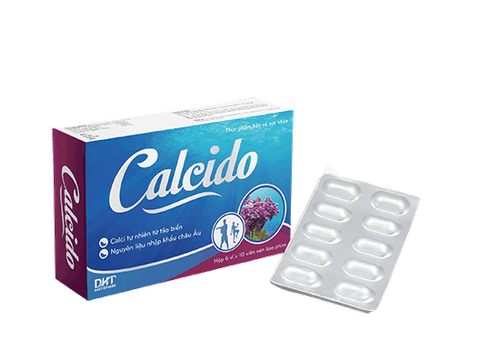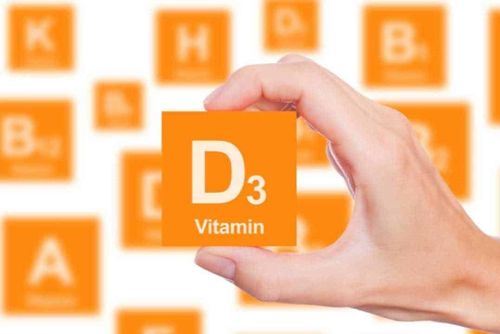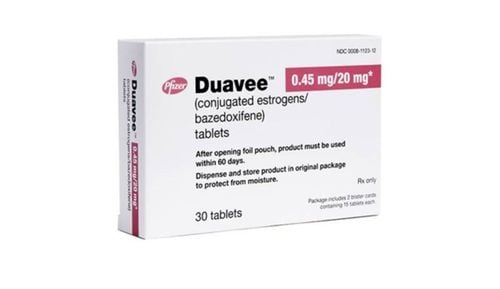This is an automatically translated article.
The article is professionally consulted by Master, Doctor Nguyen Thi Ngoc - General Internal Medicine - Endocrinology - Department of Examination & Internal Medicine - Vinmec Central Park International General Hospital. Doctor has more than 10 years of studying, researching and working in the field of endocrinology.Vitamin D is an important nutrient for the body. Using too little or too much vitamin D leads to many health consequences.
1. The role of vitamin D in the body
Vitamin D is a fat-soluble vitamin, including vitamin D2 (ergocalciferol), vitamin D3 (Cholecalciferol). There is also a precursor of vitamin D on the skin when exposed to UV rays becomes vitamin D for the body to use. Vitamin D has many important roles for the body, specifically as follows:Vitamin D has the function of enhancing the absorption of calcium and phosphorus from food, helping to reabsorb calcium and phosphorus in the renal tubules, ensuring In the process of bone formation, Vitamin D also plays a role in cell division, secretion and metabolism of hormones, including parathyroid hormone and insulin. Helps reduce inflammation and swelling in the body Vitamin D also affects the differentiation of some cancer cells such as skin, bone, and breast cancer cells. Getting enough vitamin D has been linked to a reduced risk of developing breast, colon, and prostate cancer.

Vitamin D giúp tăng cường hấp thu calci và phốt pho từ thức ăn
2. Harm of vitamin D deficiency
Vitamin D deficiency is common in children and quite rare in adults. However, adults should not be subjective because vitamin D deficiency will lead to many harmful effects for both adults and children.When vitamin D deficiency will lead to rickets in children and osteoporosis in adults. Vitamin D deficiency also leads to a higher risk of cardiovascular diseases, cognitive decline in the elderly, asthma in children and cancer. For children under 2 years old, vitamin D deficiency will cause atypical symptoms such as irritability, sweating, delayed teething, soft skull bones, and easy convulsions. When children learn to stand, they are prone to scoliosis, bow legs. Studies also suggest that vitamin D plays a role in the prevention and treatment of certain conditions such as type 1 and type 2 diabetes, and high blood pressure. pressure, impaired glucose tolerance and multiple sclerosis. The best way to detect vitamin D deficiency is to test 25-hydroxy vitamin D in the body. If the vitamin D level is between 20-50ng/ml, the person is healthy and <12 ng/ml is vitamin D deficiency.
3. Harm of too much vitamin D
Vitamin D is important for the body, but too much vitamin D can cause many harms. When using high doses of vitamin D for a long time, it will lead to toxicity due to excess vitamin D, also known as vitamin D hypercalcemia, increasing blood calcium and leading to a series of symptoms such as headache, dizziness, loss of appetite, dry mouth , cramps, constipation, nausea, muscle pain, bone pain., calcified blood vessels..In many cases, it also causes kidney damage, high blood pressure, arrhythmia, children with big pricks, fetal malformations. , shortness of breath, convulsions, decreased sexual ability...Especially excess vitamin D can cause eye complications with the following 2 common symptoms: small, white, arranged spots on the conjunctiva in the conjunctiva. Horizontal or curved lines and then pours to the edge of the black yolk, and in the cornea, there is a band-shaped keratitis, which occurs mainly in children. When detecting signs of vitamin D toxicity, it is necessary to stop taking vitamin D and immediately go to medical facilities for timely treatment. To avoid the harmful effects of excess vitamin D, you should consult a specialist before using because the dose of vitamin D for different subjects will be very different.
4. How to properly supplement vitamin D?

Sử dụng thực phẩm giàu vitamin D
The diet needs to be fully combined with a variety of foods, using foods rich in vitamin D such as fish, egg yolks, liver, fish oil, milk. , nutritional powder for children, flour, biscuits, margarine, cooking oil, cereals... In addition, you should also eat calcium-rich foods such as shrimp, crab, fish, milk, and dairy products such as shrimp, crab, fish, milk, and dairy products. yoghurt, flan, cheese .... In order for the body to absorb vitamin D well, fat should be added to the meal because vitamin D dissolves well in oil. Sunbathing provides 90-95% of vitamin D for the body. When sunbathing, wear a hat and sunglasses to avoid direct sunlight. Do not use creams to be applied to the skin during sunbathing. Let your baby sunbathe in a cool, well-lit place from the first month after birth. It is necessary to expose the legs, arms, back, abdomen, chest for the skin to be exposed to the sun. Sunbathing time is about 15-20 minutes, in the morning it is recommended to bathe before 8 am or 4-5 pm. Use vitamin D according to the dosage and prescription of a specialist. Vitamin D is a very important nutrient for the body. Therefore, it is necessary to pay attention to adequate and balanced supplementation, to avoid excess or deficiency of vitamin D. When a child shows signs of rickets, it is necessary to take the child to see a nutritionist or pediatrician for advice. appropriate consultation and treatment. Should combine a diet full of vitamin D, calcium, sunbathe every morning and use vitamin D exactly as prescribed by the doctor.
Please dial HOTLINE for more information or register for an appointment HERE. Download MyVinmec app to make appointments faster and to manage your bookings easily.













